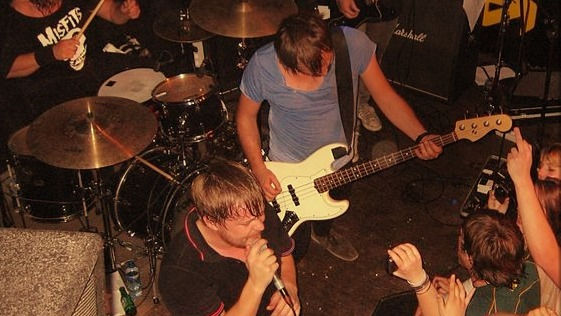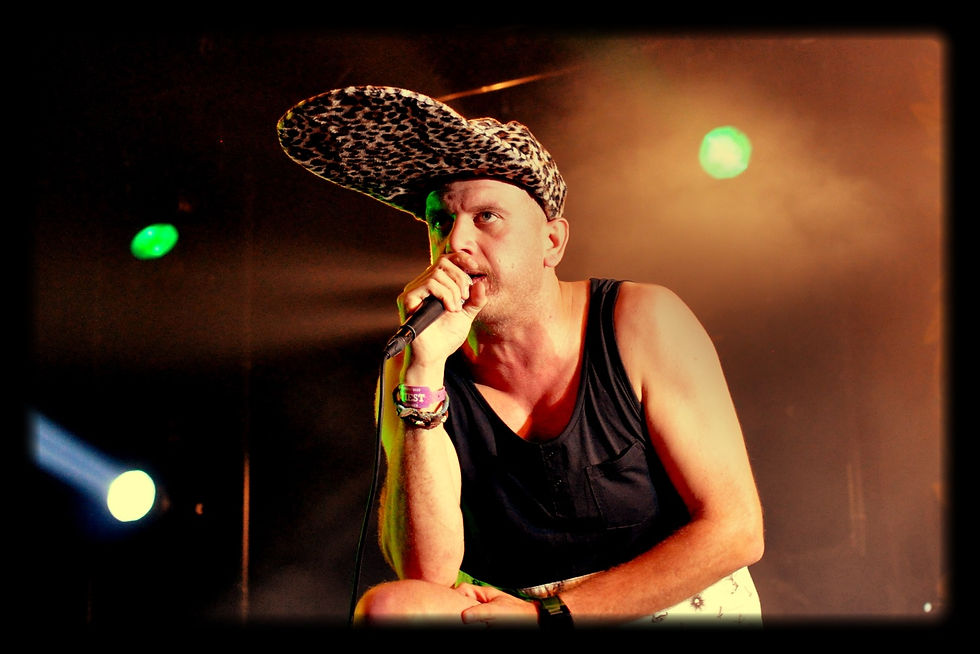Suid-Afrikaner or South African?
- Tanya Sadler

- Aug 20, 2017
- 4 min read
Updated: Jan 20, 2021

South Africa has seen an undeniable resurgence and rise in popularity of Afrikaans rock music over the last couple of years. Modern Afrikaans rock has, not unlike the Voëlvry movement of the late 80s, made waves and created a sense of belonging for a generation feeling lost and confused.
Similar in its defiant nature but different in its fundamental motivation, the Voëlvry artists of yesteryear voiced disillusionment with an oppressive government, while messages within the current rock revival are centred around a more personal struggle – that of a generation battling with a lack of identity and role models.
Apartheid fighters like Bernoldus Niemand, Johannes Kerkorrel, and Koos Kombuis are icons to many rock-loving South Africans, but musicians like Fokofpolisiekar, Jack Parow, and Die Antwoord are icons for the youth of today. The rebellion of the Voëlvry movement became ironically irrelevant with the end of apartheid, and many years passed before the appearance of Fokofpolisiekar and their phenomenal rise to fame. Although arguably the result of years of dormant repression, the upshot of Afrikaans rock groups inspired by this band seems considerably more noticeable than those which arose in the 90s. Perhaps the stigma of Afrikaans was just too fresh at the time and enough water had passed under the bridge for there to be a more unashamed acceptance of Afrikaans when the boys from Bellville decided to make their move? Be that as it may, Afrikaans rock has given a searching generation a sense of identity. The nature of this identity has, however, become somewhat dubious. Fokofpolisiekar lyrics stem from an anger and frustration with an oftentimes rigid culture, and they are unapologetically fed up having to suffer the consequences of their forefathers. They bravely opened the door to this taboo subject and found themselves faced with a generation of peers who shared this sentiment, who were hungry for answers, and who were desperate for leadership.
Fokofpolisiekar lyricist Hunter Kennedy talks about the band's initial motivation in the documentary, 'Forgive Them For They Know Not What They Do'. He said: “And I think after a while we just realised that no one really knows … you know … and we were pissed off that people actually acted like they have answers, when no one actually has. So I think that's how we felt cheated …“
The overwhelming popularity of Fokofpolisiekar is proof that young Afrikaners just wanted permission to stop apologising for who they are. And these musicians sprinting with this torch resulted in many new bands proudly speaking their minds in their mother tongue. But is this growing craze perpetuating the exact thing that those who passed the flame fought for?
As the band's popularity grew, so did the throngs of fans lapping up their bold message of swapping self-loathing for an attitude of being proudly Afrikaans – one they perhaps made a little bit too idly. Because what is actually a call to question the accepted norm of the suburban post-apartheid Afrikaner mentality in order to realise an identity as an African alongside the continent's many cultures is sadly being misconstrued by some as Afrikaner nationalism.

The release of a song called 'Del La Rey' in 2006, by a then little-known Afrikaans pop singer called Bok van Blerk, became a very contentious subject. The song’s titular character, Koos de la Rey, was an Afrikaner boer and army general who openly admitted that he was opposed to invoking war with the British because he didn't believe that his side could win. When he was berated for this and accused of being a coward, Del La Rey famously, and accurately, predicted that he would still be there fighting for his people long after Paul Kruger had fled for safety. Although Van Blerk didn't actually write the song himself, South Africans across all races expressed outraged at what they perceived to be an audacious subject matter and uncouth lyrics; the begging of the small and intimidated Boer army for the general to lead them to victory. Stuck between a rock and a hard place, Van Blerk was contrarily praised for his patriotism by the Afrikaner right-wing. Echoing the sentiments of Fokofpolisiekar some three years after the release of their debut album, Van Blerk said the song is about Afrikaners embracing their culture but refuted any allegiance with his conservative supporters.
"Young Afrikaners are tired of having the apartheid guilt trip shoved down their throats. This song makes them proud of their heritage," he said.
It can be argued that swift misgivings and vehement accusations like these are a source of annoyance for the modern Afrikaner and a contributing factor to a sense of alienation and a tendency to stick to their own. And might it not also be at least partly the reason why, what started out as Fokofpolisiekar's genuine desire for a sense of belonging to their birthplace, is running the risk of becoming yet another reason to remain safely removed and separate?
Die Musiek Kanaal, or MK on Afrikaans DStv channel KYKnet, is solidly interlinked with the influx of Afrikaans language bands, whose music videos tend to sky-rocket their popularity. And when your chances of being notice by MK are considerably higher if your lyrics are mostly in Afrikaans, why would you not opt for this route? So there are some who believe that this golden ticket to major publicity is compromising the quality of popular local music – that talent is being overlooked because it doesn't fit the mould.
But Fokofpolisiekar lyrics ask for the exact opposite of this. Fokofpolisiekar lyrics plead for change and a break away from the mould. And, if we truly love the local music scene and genuinely want to nurture it like MK says it does, shouldn't we give it what it wants set it free? Because, yeah. Sure. The caged bird does sometimes sing. But "the caged bird sings of freedom". It's the free bird who “dares to claim the sky”.
Comments